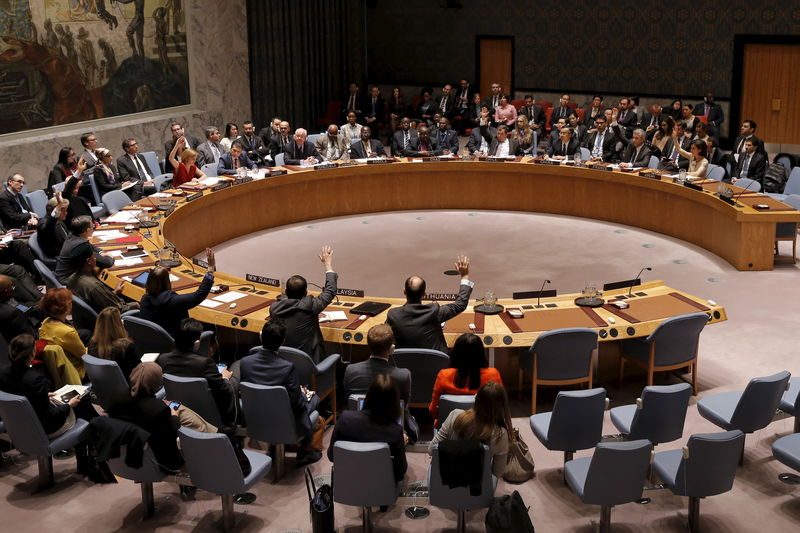By Michelle Nichols
UNITED NATIONS (Reuters) - China, Russia, Venezuela and Angola failed on Thursday to stop the United Nations Security Council from holding its second meeting on human rights in North Korea, which has been accused by a U.N. inquiry of abuses comparable to Nazi-era atrocities.
China called a vote to stop the meeting, but lost nine to four. Nigeria and Chad abstained. Nine votes are needed to win a procedural vote and the five permanent members - China, Russia, the United States, Britain and France - cannot use their vetoes.
It was the first time a procedural vote has been held on an item already on the council's agenda, according to think-tank Security Council Report. The United States, France, Jordan, Lithuania, Malaysia, New Zealand, Chile, Spain and Britain voted to hold the meeting.
"The Security Council is not the place to address human rights, nor should it politicize the issue," said China's Deputy U.N. Ambassador Wang Min. "The human rights situation of the DPRK (North Korea) does not constitute a threat to international peace and security."
The 15-member council added the situation in North Korea - including human rights - to its agenda and held its first meeting on the issue a year ago, despite objections at the time by China, a firm ally of North Korea, and Russia.
Previously, the council's discussion of North Korea was limited to its nuclear weapons program. North Korean leader Kim Jong Un on Thursday claimed his country had developed a hydrogen bomb, but outside experts were sceptical.
North Korean diplomats did not attend Thursday's Security Council meeting.
"The international community has a collective responsibility to protect the population of the DPRK, and to consider the wider implications of the reported grave human rights situation for the stability of the region," Jeffrey Feltman, U.N. political affairs chief, told the council.
The 193-member U.N. General Assembly has urged the U.N. Security Council to consider referring North Korea to the International Criminal Court after a U.N. Commission of Inquiry detailed wide-ranging abuses in the impoverished Asian state.
China is likely to veto such a move, diplomats said.
"Gross violations continue, the institutional nature and severity of which pose a threat to international peace and security," U.N. Human Rights Commissioner Zeid Ra'ad Al Hussein told the Security Council.

"The continuing violations and systemic failings simply heighten international anxieties over the possibility of a precipitous turn, an event of great centrifugal consequence which could rapidly engulf the region," he said.